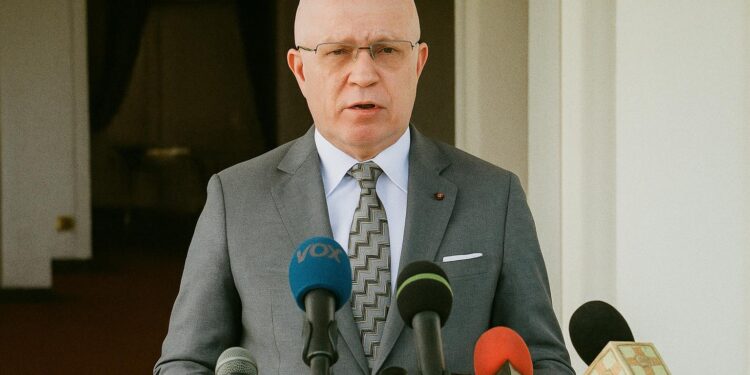Strategic Energy Portfolio Consolidation
The cabinet session placed the hydrocarbon sector—responsible for roughly three quarters of Congo’s export earnings according to the African Development Bank—at the centre of its deliberations. Five production-sharing agreements involving the Likouala II and Ikalou II permits, as well as amendments to the Haute Mer, Nsoko II and Nanga I licences, were endorsed for parliamentary transmission. The recalibrated ownership structures give the national oil company SNPC a steady 15 percent, while Perenco, Trident Energy and TotalEnergies assume operational responsibilities. Officials argue that this blend of state participation and international technical know-how preserves sovereignty while unlocking an estimated 127 million additional barrels over two decades, a projection broadly consistent with recent industry audits (International Energy Agency, 2024).
Fiscal Prudence and Production Horizons
Finance technocrats describe the new contracts as cash-neutral in the near term yet revenue accretive beyond 2030, when redoubled output is expected to offset maturing fields. A capped cost-oil ratio combined with a stabilised royalty floor provides predictability at a time of volatile Brent benchmarks. Rating agencies had earlier flagged Congo’s debt sustainability risks; by front-loading private capital for field redevelopment—780 million dollars for Likouala II alone—the government shields its balance sheet while retaining the option to ramp up equity if market conditions warrant. Diplomats in Brazzaville privately note that this approach mirrors models adopted in Namibia and Mauritania, signalling a regional convergence toward hybrid energy governance.
Forestry Research Realignment
A less publicised but institutionally significant bill revises the 2012 statute that created the National Institute of Forestry Research. By integrating the erstwhile industrial plantation productivity unit into the Institute, the government intends to eliminate dual mandates that had constrained donor engagement. Forestry constitutes a strategic carbon sink for Congo; the World Bank values its sequestration potential at more than 30 million tonnes of CO₂ annually. Unifying research lines is therefore expected to facilitate access to climate finance while streamlining workforce management, an administrative step welcomed by academics at Marien Ngouabi University.
Expanding Universal Health Coverage
Echoing the President’s commitment to a resilient health architecture, the cabinet created general hospitals in Ouesso and Sibiti. The facilities, now in their finishing phase, will each host multidisciplinary units in cardiology, obstetrics and trauma care, addressing referral bottlenecks in the Sangha and Lékoumou departments. Ministry projections suggest that the two hospitals could raise specialised-care coverage from 42 percent to 57 percent of the national population by 2028. International partners such as the World Health Organization have lauded the move as consonant with Agenda 2030 targets, though they underscore the need for sustained staffing and biomedical supply chains.
Cultural Diplomacy through Fespam
Despite liquidity pressures linked to post-pandemic recovery, Brazzaville confirmed the twelfth edition of the Pan-African Music Festival for 19-26 July 2025 under the theme “Music and Economic Stakes in Africa in the Digital Age”. The festival’s hybrid financing model, combining national appropriations with UNESCO sponsorship and a nascent creative-industry levy, exemplifies Congo’s bid to convert cultural capital into soft power dividends. Regional observers liken Fespam’s branding potential to that of Dakar’s Biennale, positioning Brazzaville as a cultural node in Central Africa.
Presidential Call for Infrastructure Stewardship
In an unscripted intervention, President Denis Sassou Nguesso deplored the visible deterioration of sports and university complexes erected for the 2015 African Games. He ordered a cross-ministerial task force, chaired by the Prime Minister and coordinated by the Ministry of Grand Works, to draft an immediate remediation blueprint. Observers note that task forces have been effective in past emergencies—such as the 2020 flood response—adding credibility to the directive. The President’s focus on maintenance rather than fresh construction resonates with International Monetary Fund recommendations on asset longevity (IMF Article IV, 2023).
Regional and Diplomatic Implications
Collectively, the cabinet’s decisions project a message of policy continuity aimed at investors and bilateral partners. The hydrocarbons roadmap affirms Congo’s intent to remain an influential voice within OPEC+, while the health and cultural initiatives buttress its credentials in human-centric development. European envoys consulted after the meeting described the outcome as a calibrated blend of macro-stability and social investment. As the bills move to Parliament, the interplay between executive resolve and legislative scrutiny will shape implementation horizons, yet the forward-leaning tenor of the session suggests sustained momentum into the next fiscal cycle.










































